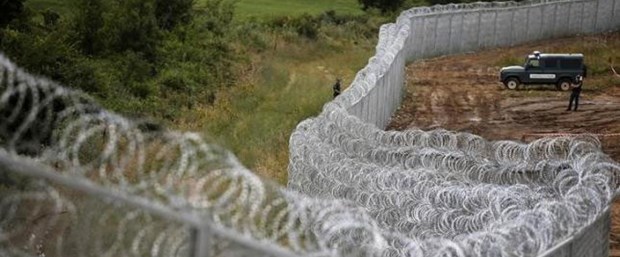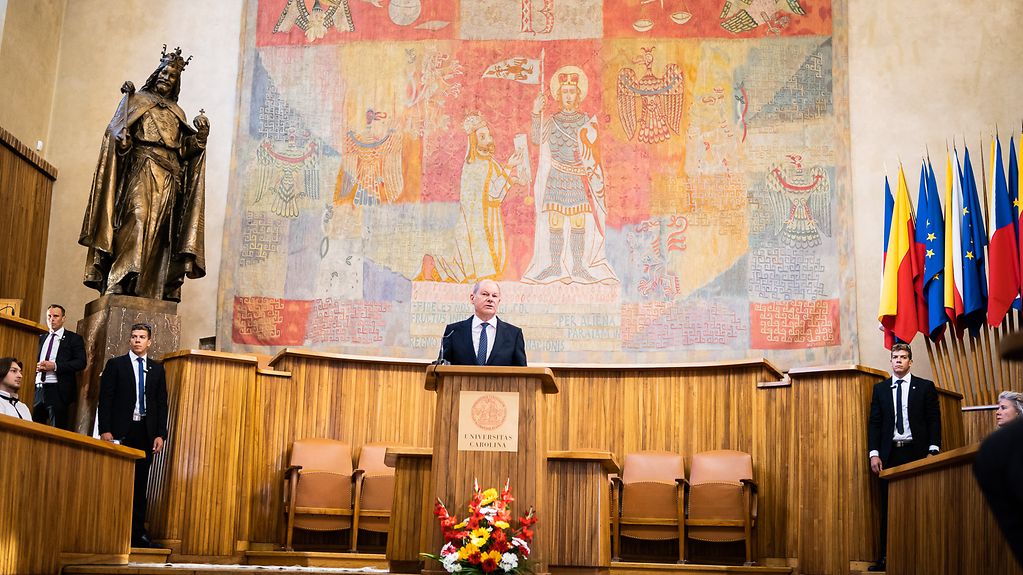The act of erecting a wall between Turkey and Western Europe has started in Greece through EU funds. According to the information provided by European agencies, 10.5 kilometers of the 4 meter tall razor wire fence drawn along the Maritsa River on the Turkish-Greece border has been completed to the cost of 3 million Euros. Thus, the Schengen regulations have taken a concrete and visible shape and Europe is on its way to separation with a new curtain.
The razor wire fence on the Turkish-Greece border is symbolic at this stage. It has brought in a concrete and ugly perspective to a well known understanding and approach. It will not be surprising for it to be extended further in the future. The political footsteps of this approach go all the way back to the policy and initiative of alienating Turkey in the Balkans. Western Europe has never in its history been pleased with the Balkan concept. This depiction evoking Turkish presence and Turkish dominance in the region has formed a sufficient justification to disparage the term. The word Balkan is Turkish. Turkish tribes, who have compared the Balkan Mountains and Balkan geography to the regions they lived in before, have given this name and the region has been identified with this name for centuries.
The definition which the EU has adopted and is trying to impose today is Southeastern Europe. The term, Western Balkans, the geographical concept used for those Balkan countries not yet admitted to enter the EU, is bound to be removed from circulation when the EU membership process is realized. Since a definition for Eastern Balkans does not exist and the border to the east is drawn with Romania, Bulgaria and Greece, Turkey is designed to be alienated from the Balkans in political literature and as such, from Europe.
Turkey has traditionally attached importance and priority to good neighborly relations and cooperation in the Balkans, has also played an active and leading role in the establishment and institutionalization of the “Southeast European Cooperation Process”. The emergence of organizations and institutions with varying memberships, within the scope of Southeast Europe whose numbers and functions are gradually increasing, have inevitably led to Turkey’s presence in the region to be watered down. Greece’s attempts to provide a place for the Greek Cypriot Administration of Southern Cyprus in the region and Slavic countries establishing new formations have also not contributed to regional solidarity.
Turkey’s alienation from the Balkans, in its quest for membership, receiving a cold shoulder from the EU, its European identity and membership of the European family put into question are elements prone to conjure the memories and conditions before the First World War. During that period, the Ottoman administration had first sought cooperation with the allied powers and had made serious inquiries with the major allied powers, France and the UK, but was rather pushed to the other camp by the allies who contemplated the spoils of war as Ottoman territories and were already plotting how to share them. Of course, conditions have changed. Turkey is no longer Europe’s sick man. It has learned its lessons from history and has determined its position with the Treaty of Lausanne.
© 2009-2025 Center for Eurasian Studies (AVİM) All Rights Reserved
 A LOOK INTO THE YEAR 2022
A LOOK INTO THE YEAR 2022
 EURASIAN DEMOGRAPHY’S TURNING POINT: WHY TURKIC STATES MUST LEAD ON ELDERLY RIGHTS
EURASIAN DEMOGRAPHY’S TURNING POINT: WHY TURKIC STATES MUST LEAD ON ELDERLY RIGHTS
 THE EU CONTRADICTS ITSELF BY CRITICISING TRUMP FOR BUILDING THE WALL ALONG THE US-MEXICO BORDER
THE EU CONTRADICTS ITSELF BY CRITICISING TRUMP FOR BUILDING THE WALL ALONG THE US-MEXICO BORDER
 SCHOLZ'S DREAMS OF AN EU WITHOUT TURKEY
SCHOLZ'S DREAMS OF AN EU WITHOUT TURKEY
 NAGORNO-KARABAKH AND CRIMEA: A COMPARISON OF DOUBLE STANDARDS
NAGORNO-KARABAKH AND CRIMEA: A COMPARISON OF DOUBLE STANDARDS




























